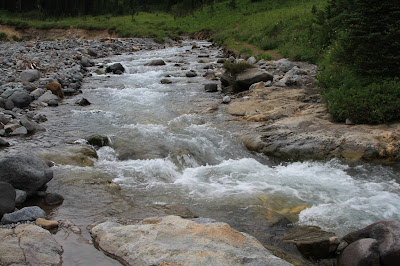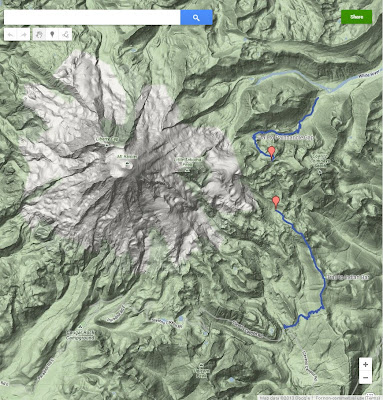Left: View of Colchuck Lake from the Northwest Shore; Right: Climbing Aasgard Pass with Colchuck Lake Below
From the Alpine Lakes Wilderness - Stuart Lake trailhead, we intended to make Colchuck Lake our turn-around point. But after arriving at the lake at 10:30 am, we decided to make a push for the pass. It would have been nice to have exited out via Snow Lakes had we thought ahead and left our car there. But alas, no, we turned around at Isolation Lake and headed back. We heard some hikers mention that going counter-clockwise (Colchuck to Snow Lakes) as a circular route was preferred over the other direction.
Stats
Length: 15 miles roundtrip (100 Hikes in Washington's Alpine Lakes), 13.2 miles (our measurement)
Duration: 9.5 hours. 8:06 am leave trailhead, 12:50 pm at Isolation Lake for second lunch, 1:45pm leave the pass and head back, and 5:47 pm back at trailhead.
Elevation: 3,458 feet starting (3,400 reported by WTA) at trailhead; 7,820 feet max reached, and 5,250 feet total ascent.
Left: Topo (Google) Map of the Hike; Center: Mountaineer Creek – Early in the Hike; Right: Garmin Read Out at the End of the Hike
Flora and Fauna
Oreamnos americanus - Mountain Goat. We were looking for the backcountry toilet and found this goat. We never did find the toilet.
Eutamias spp. – Chipmunk, either E. townsendii or E. amoenus. We saw lots of chipmunks on the way to Colchuck Lake and none when we climbed to Aasgard Pass.
Arctostaphylos uva-ursi – Kinnikinnick, or Pinemat Manzanita. We were intrigued by the creeping, mat-like growth which is typical of this species. Many times the plants are plastered up against a rock perhaps for extra warmth and that the snow clears from the rocks first giving plants an advantage over other plants covered in snow.
Alnus rubra – Red Alder at the south end of the lake. Immature yellow-green female catkins (or cone-like strobiles) can be seen. They will turn to brown cones that contain seeds.
Gentiana calycosa - Mountain Bog Gentian, always a welcome splash of purple.
Artemisia sp. – Wormwood. Don’t know the exact species of this, but likely A. campestris with a variety tacked on the end. It did smell fragrant when a few of the leaves were crushed. Really only noticed this plant as we climbed to the pass where it seemed to thrive.
Sedum divergens – Spreading Stonecrop. As we were pulling ourselves up to the pass, there was this sedum perched on a ledge watching us hikers.
Left: Alnus rubra – Red Alder on the South Shore of Colchuck Lake; Center: Arctosaphylos uva-ursi – Kinnikinnick on Shore of West Colchuck Lake; Right: Artemisia sp. on the Start of the Climb to Aasgard Pass
Lichen
Letharia vulpina – Wolf Lichen, fluorescent green dues to the vulpinic acid they contain. Some references to find out more: 1. a nice visual comparison of fruticose lichens. and 2. Epiphytic lichen diversity and biomass in low-elevation forests of the eastern Washington Cascade range, USA.
Bryoria - lichenized fungi. I think we were seeing mostly Bryoria fremontii – Old Man’s Beard, but there could have also been Bryoria fuscescens – Horsehair Lichen. Who knew you could make a tasty loaf of lichen as shown in the Wikipedia entry for Wila (a First Nations name for this lichen).
Chipmunks We Encountered on Our Climb to Colchuck Lake
Left: Biblis hyperia - Crimson-banded Black on a Boulder on the Shore of Colchuck Lake; Right: Letharia vulpina – Wolf Lichen on Ponderosa Pine on the Way Up to Colchuck Lake
Views of Colchuck Lake: Left and Center: From the South Shore Looking North; Right: From the South Shore Looking East
Left: Colchuck Glacier from the Lake Shore; Right: Dragontail Peak from Isolation Lake
Left: First Glimpse of Isolation Lake as We Come Over the Pass; Right: Greeted with Gentian Near Isolation Lake
Left and Right: Oreamnos americanus - Mountain Goat at the Edge of Tranquil Lake
Left: Sedum divergens tucked into a Rock Crevice on the Climb to Aasgard Pass; Right: The Climb to Aasgard Pass from the Shores of Lake Colchuck
Left: Tranquil Lake; Right: Isolation Lake. The two lakes are right next to each other.
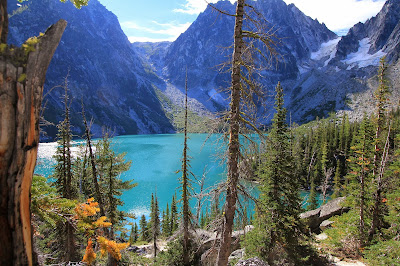





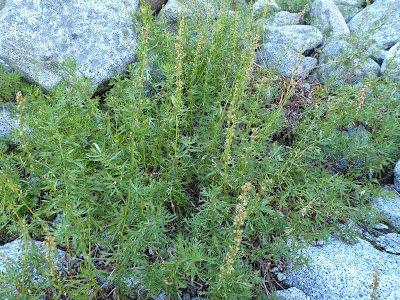
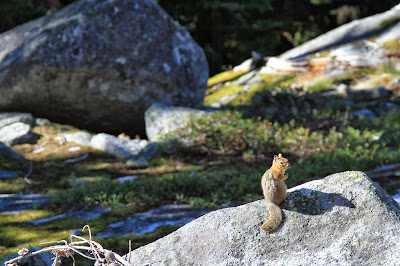

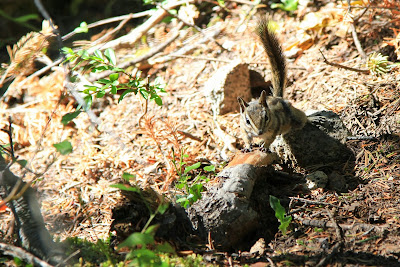
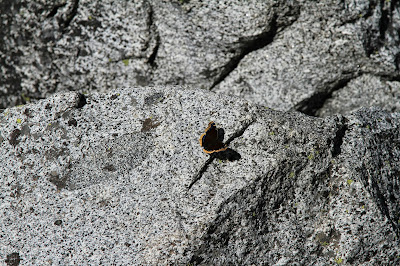





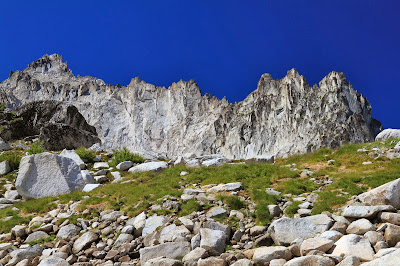

+near+Isolation+Lake.JPG)







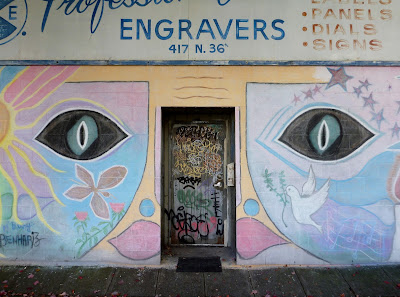



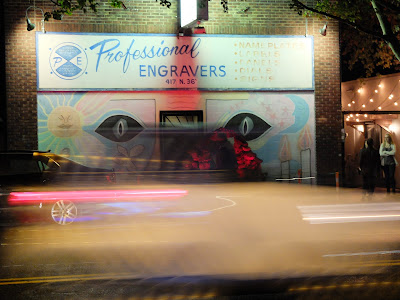






.JPG)
+%5B2008%5D.JPG)
+%5B2004%5D.JPG)
+%5B2006%5D.JPG)
+%5B2004%5D.JPG)
+%5B2005%5D.JPG)
+%5B2009%5D.JPG)
+%5B2008%5D.JPG)
+%5B2006%5D.JPG)
+%5B2003%5D.JPG)

